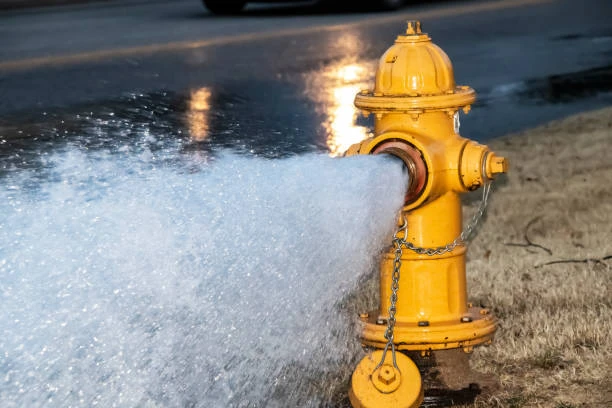In the competitive world of automotive performance, innovation is key. Recently, Halo Wheels unveiled their latest innovation: the Hi Flow valves. These valves are designed to enhance vehicle performance, optimize airflow, and improve overall efficiency. This article explores the significance of flow valve, the technology behind Halo Wheels’ new release, and how these advancements can benefit automotive enthusiasts and professionals alike.
Understanding Flow Valves
Flow valves are essential components in various systems, controlling the flow of fluids or gases. They regulate the rate of flow, ensuring optimal performance in applications ranging from industrial processes to automotive engineering. The efficiency and effectiveness of flow valves can significantly impact system performance, safety, and reliability.
Types of Flow Valves
There are several types of flow valves, each serving unique functions. Some common types include:
- Ball Valves: Known for their quick on/off capabilities, ball valves allow for precise control of flow.
- Globe Valves: These valves are ideal for throttling flow, making them suitable for regulating pressure in various systems.
- Gate Valves: Primarily used for on/off control, gate valves are important to minimize pressure drops.
- Check Valves: These valves prevent backflow in a system, ensuring the flow remains unidirectional.
- Flow Control Valves: Specifically designed to manage the flow rate, these valves are crucial in applications requiring precise fluid dynamics.
Understanding the different types of flow valves is essential for choosing the right one for specific applications, particularly in automotive settings.
The Role of Hi Flow Valves in Automotive Performance
Halo Wheels’ new Hi Flow valves are necessary to enhance airflow in automotive applications, leading to better engine performance, increased power output, and improved fuel efficiency. These valves are particularly beneficial for performance vehicles, where optimizing airflow can make a significant difference.
How Hi Flow Valves Work
Hi Flow valves operate by increasing the volume of air entering the engine, which enhances combustion efficiency. This process involves several key components:
- Increased Air Intake: Hi Flow valves are essential with larger openings compared to standard valves, allowing more air to flow into the engine.
- Enhanced Flow Dynamics: The internal design of Hi Flow valves promotes smooth airflow, reducing turbulence and ensuring that air moves efficiently through the system.
- Compatibility with Performance Upgrades: These valves work seamlessly with other performance modifications, such as upgraded air filters and exhaust systems, further enhancing overall performance.
By improving airflow, Hi Flow valves enable engines to breathe more easily, resulting in increased power and responsiveness.

Benefits of Using Hi Flow Valves
The introduction of Hi Flow valves by Halo Wheels brings several benefits to automotive enthusiasts and professionals:
1. Improved Engine Performance
The primary advantage of Hi Flow valves is the noticeable improvement in engine performance. By facilitating better airflow, these valves allow for more effective combustion, leading to increased horsepower and torque.
2. Enhanced Fuel Efficiency
With optimized airflow, engines can achieve better combustion efficiency, which translates to improved fuel economy. This benefit is particularly valuable for those seeking to reduce operating costs without sacrificing performance.
3. Greater Responsiveness
Hi Flow valves provide quicker throttle response, allowing drivers to experience a more dynamic driving experience. The enhanced airflow contributes to a more immediate power delivery, making acceleration feel more responsive.
4. Compatibility with Various Engine Types
Halo Wheels’ Hi Flow valves are important to be versatile, fitting a wide range of engine types and configurations. Whether you’re working on a turbocharged engine or a naturally aspirated setup, these valves can enhance performance across the board.
5. Durability and Reliability
Constructed from high-quality materials, Hi Flow valves are built to withstand the rigors of automotive applications. Their durability ensures consistent performance over time, making them a reliable choice for both casual drivers and serious enthusiasts.
Installation and Maintenance of Hi Flow Valves
Installing Hi Flow valves is a straightforward process, but it requires careful attention to detail to ensure optimal performance. Here are some key steps to consider:
Installation Steps
- Preparation: Gather the necessary tools and equipment. Ensure the vehicle is on a level surface and securely lifted if needed.
- Remove the Old Valves: Carefully detach the existing valves, taking note of their configuration for reinstallation.
- Install Hi Flow Valves: Align the new Hi Flow valves and secure them according to the manufacturer’s specifications.
- Check for Leaks: Once installed, start the engine and inspect for any signs of air leaks, ensuring a proper seal.
Maintenance Tips
To maintain optimal performance of Hi Flow valves:
- Regular Inspections: Periodically check the valves for wear and tear or any signs of damage.
- Clean the Valves: Keep the valves clean to prevent buildup that could restrict airflow.
- Monitor Performance: Pay attention to engine performance metrics to identify any changes that may indicate a need for maintenance or adjustment.
The Future of Flow Valve Technology
As automotive technology continues to evolve, the role of flow valves will become increasingly important. Innovations in materials and design are likely to lead to even more efficient and effective valves.
Smart Valves and IoT Integration
The integration of smart technologies into flow valves is on the horizon. Smart valves equipped with sensors can provide real-time data on performance, allowing for proactive maintenance and optimization. This technology could revolutionize how automotive engineers approach airflow management, ensuring that vehicles perform at their best.
Conclusion
Halo Wheels’ introduction of Hi Flow valves represents a significant advancement in automotive performance technology. By enhancing airflow and improving combustion efficiency, these valves offer numerous benefits, including increased power, improved fuel efficiency, and greater responsiveness. As the automotive industry continues to innovate, the future of flow valves looks promising, paving the way for even more enhancements in vehicle performance.
FAQs
1. What are Hi Flow valve?
Hi Flow valve are specially designed automotive valves that increase airflow into the engine, enhancing performance and efficiency.
2. How do Hi Flow valves improve engine performance?
By allowing more air to enter the engine, Hi Flow valve promote better combustion, leading to increased horsepower and torque.
3. Are Hi Flow valves compatible with all engine types?
Yes, Hi Flow valve are designed to fit a wide range of engine types and configurations, making them versatile for various applications.
4. What maintenance is required for Hi Flow valve?
Regular inspections and cleaning are recommended to ensure optimal performance. Check for wear, leaks, and proper sealing.
5. Can Hi Flow valves improve fuel efficiency?
Yes, optimized airflow from Hi Flow valves can lead to better combustion efficiency, which in turn can improve fuel economy.


















